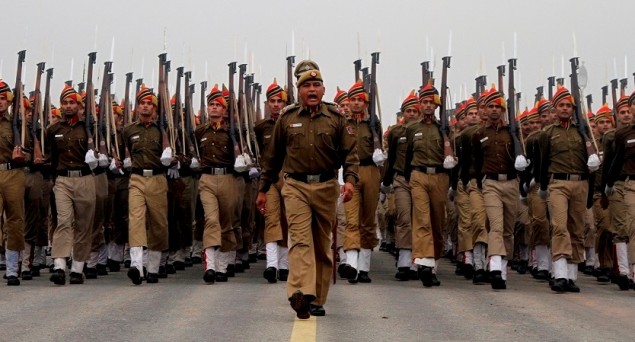Mohd Asim Khan,
New Delhi, Aug 16: India needs to carry out police reforms at the earliest to rid young recruits of the poison of communalism when they sign up, a retired senior police officer has said.
Security forces should also be made accountable if and when communal riots erupt, retired Director General of Police Vibhuti Narain Rai said.
“In police training, the focus is primarily on physical and arms training,” Rai told IANS. “There is hardly an attempt to address a person’s psychological fears or to make him a better human being.
“The communal prejudices are so deep-rooted that people hardly ever bother to check the facts,” he added.
“There is an immediate need to make interference at the police training level. Good psychologists, behavioural scientists, sociologists, history teachers must be hired to impart training,” Rai said.
“The policemen should be made to read history and sociology too.”
Rai, who is also an activist and an acclaimed writer, was among the first police officers to expose the massacre of 42 innocent Muslims by the Provincial Armed Constabulary (PAC) near Meerut in Uttar Pradesh in 1987. This came to be known as the Hashimpura massacre.
But no one was punished for the mass killings despite a prolonged battle in courts.
Rai, whose book on the Hashimpura massacre has just been released by Penguin, says this kind of impunity must end.
“A mechanism of fixing accountability should be in place. No person should go scot-free after doing something as horrible as Hashimpura,” he said in an interview.
Rai, who joined the Indian Police Force in 1975, has also taken part in counter-insurgency operations in Jammu and Kashmir. He is the recipient of the President’s Police Medal for Meritorious Service.
Rai says a key part of police reforms must ensure that the force has “a fair representation of people from all communities, caste and regions. The intermingling will automatically do away with many prejudices.
“The British made the police brutal and ruthless on purpose. But why did Indian leaders not make an effort to change the character of the police and make it humane and friendly?
“Perhaps the powers that be liked the police to be ruthless to instil a fear of the state,” he said.
According to Rai, though Hindus and Muslims have co-existed in India for over 800 years and have influenced each others’ lifestyle, “there has been confrontation and friction between the two communities”.
Many ordinary Hindus and Muslims, he said, have prejudices about each other.
“By the time a person joins the police or paramilitary, his perceptions and prejudices have already formed and consolidated.
“Now, the nine-month training provided to an average policeman barely has an impact on his psyche,” he said, underlining the need to bring about radical changes in the training system.
“During riots, Muslims do not trust the police and see them as their enemy. But Hindus see them as their friend. And these perceptions have not formed out of thin air. There is a basis for such perceptions.”
Rai, however, feels that intolerance in the country now is hardly anything compared to the 1980s and 1990s when the Ram Janmabhoomi movement was at its peak.
“I don’t think today’s intolerance level is even a fraction of what we saw in the 1980s when communal passions were soaring high,” Rai told IANS.
He said the kind of communal divide one saw in the 1980s cannot be created now, “however hard the Hindutva forces may try”.
One reason for this is the pro-active media, “especially the electronic and social media… You cannot perpetrate such a brutality these days and get away with it,” Rai said, referring to the Hashimpura massacre, which was the first case in India of mass custodial killings.
“A large section of Hindus are fed up with communal politics. They voted Narendra Modi for development, not for communal reasons,” Rai said.
(Mohd Asim Khan can be contacted on [email protected])
(IANS)





